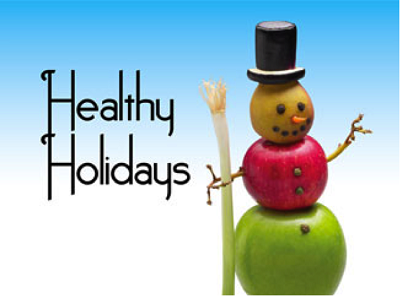Holidays and Heart Health

Even if you are extremely healthy, the holidays can take a toll by dramatically raising stress levels and presenting countless opportunities to overindulge.
The average person gains 5 pounds between November and December and 80 percent of us report our stress levels as "extreme" in the weeks leading up to Christmas.
If you already have cardiovascular disease or diabetes, the impact of the holidays can actually be life-threatening. Too much food and alcohol, too many sweets and overexertion from seasonal tasks such as shoveling snow all contribute to and/or worsen heart-related problems.
To avoid holiday health issues, we recommend that you follow these American Heart Association and Vascular Health Clinics guidelines:
Devise a holiday health plan
Rather than go into the holidays hoping for the best, devise a plan that protects you from stress and overindulgence. Choose two or three simple tactics to incorporate into your daily routine. For example, you could commit to having a heart healthy lunch each day or to being active for 30 minutes several days a week. You could also choose to take 30 minutes each evening to sit quietly, to listen to soft music or take a warm bath with no interruptions.
Guard against overindulgence
Instead of avoiding the special foods that are part of the holidays, choose to enjoy them in moderation by limiting your portion size. Particularly limit the amounts of foods you consume that are heavy in cream, sugar or salt, and never go back for seconds. If you find holiday menus to be irresistible, eat a high-protein snack such as nonfat yogurt or fruit, or eat two servings of raw vegetables before a meal or party. The protein will provide sustainable energy and the vegetables will make you feel fuller longer so you can avoid overeating.
Moderate your alcohol intake
While very small amounts of alcohol have some health benefits, drinking excessively is not good for your cardiovascular system since it can increase your blood pressure, lead to heart failure and put you at risk of stroke. The American Heart Association recommends no more than two alcoholic beverages a day for men and one for women. Avoiding excess where alcohol is concerned will also reduce your overall calorie intake.
Manage stress
Stress places an undue burden on your heart. Studies show that individuals experiencing stress for extended periods are more likely to have heart disease and die from a cardiovascular condition. The stress associated with the holidays is especially dangerous since it can cause you to smoke more cigarettes, drink more alcohol and make poor eating choices more often in an attempt to cope.
When you feel stress mounting, stop and take a few moments for yourself. Have a massage, get into a hot tub, have a facial, go for a 30 minute walk or take a bubble bath. Most importantly, give yourself a gift of peace. Say no to some invitations and simplify your family gatherings.
Avoid overexertion
Winter activities such as shoveling snow can be extremely strenuous on your heart. And when you're home during the holidays, or preparing your home for visitors, you are likely to engage in these activities more often than usual.
If you are relatively inactive, hire someone to do the outdoor chores so you do not place stress on your heart. If you perform the chores yourself, be sure to use a small shovel to limit the amount of snow you hoist at one time. Take frequent breaks to give your heart a chance to rest. And most importantly -- know the warning signs of a heart attack which include chest pain, shortness of breath, nausea and cold sweats. If you experience these symptoms, get emergency help immediately. Do not wait for the symptoms to subside or the pain to go away.
When you use these guidelines during the holidays, you've set the tone for a healthier lifestyle so consider making them a permanent part of your routine for the entire New Year.
Story Credit: http://www.ourmidland.com/news/article/Haqqani-nbsp-Holidays-and-heart-health-12418121.php


